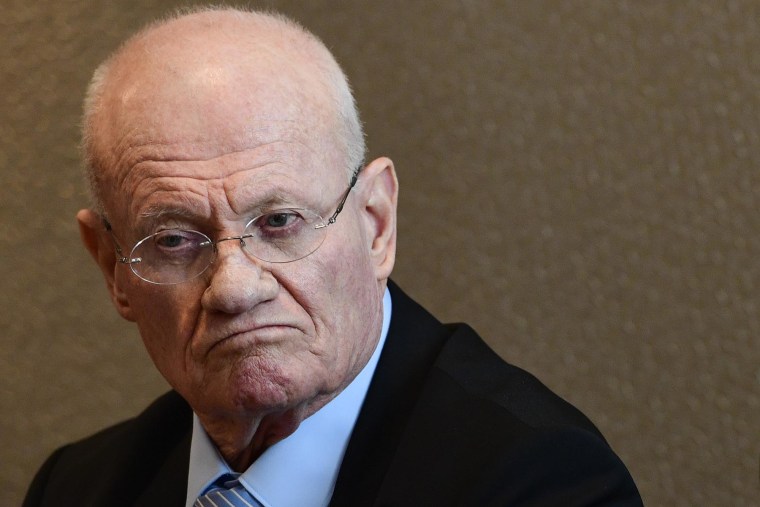Israeli Prime Minister Benjamin Netanyahu should end his “political” war in Gaza and bring the remaining hostages home, former leaders of the Mossad intelligence agency and members of the military told NBC News on Tuesday.
Unless Netanyahu changes “his attitude and his strategy, I think that to achieve an agreement will be very difficult,” Danny Yatom, who served as head of the Mossad, said Tuesday in a telephone interview.
Yatom, who was also then-Prime Minister Ehud Barak’s chief of staff and security adviser, is one several former leaders of the spy agency who backed a series of open letters to the Israeli government.
The former members of the military and the intelligence community, as well as reservists, are demanding an end to the war in Gaza in return for the release of at least 59 hostages who remain in captivity there.

Less than half are believed to still be alive, according to Israeli officials.
After another letter signed by nearly 1,000 Israeli Air Force reservists and retirees was published in Israeli media on Thursday, the army said it would fire anyone who added their name to it. It did not specify how many people that included or if the firings had begun.
Hamas has maintained that it will not agree to a deal that does not include the promise of a complete end to the war in Gaza, which began after the Hamas-led attacks on Oct. 7, 2023. Some 1,200 people were killed and around 250 taken hostage, according to Israeli tallies, marking a major escalation in a decadeslong conflict.
More than 51,000 people have been killed in Gaza since the war began, according to the health officials in the Hamas-run enclave.
Talks for a permanent end to the fighting were supposed to begin after the first phase of a three-part ceasefire deal — in which Hamas released 25 living hostages and the bodies of eight in exchange for around 1,800 of Palestinian prisoners — ended on March 1.
But Israeli forces shattered the fragile truce last month and has since launched airstrikes on the enclave while also resuming military ground operations.

Yatom said it was clear to many that “the targets of Netanyahu are different than the targets of the society, of the Israeli society.”
“His main priority is to remain prime minister,” Yatom said, adding that his prime minister’sfragile government coalition relies on the support of far-right lawmakers like Finance Minister Bezalel Smotrich and National Security Minister Itamar Ben-Gvir, both of whom have threatened to withdraw support if the military campaign ends in Gaza.
Citing his opposition to the truce, Ben-Gvir resigned from the Israeli government in January after the original ceasefire deal was announced. He returned to the Cabinet shortly after Israeli forces resumed their operations in Gaza.
Eran Duvdevani, a retired colonel with the Israel Defense Forces who helped to organize a separate letter signed by former and reserve Israeli paratroopers, said that Israel had agreed to the original ceasefire deal “and now, it’s as if there’s zero willingness to agree to an end to the war.”
“Even though Hamas did horrific things on Oct. 7, you don’t go to war for revenge.” he said.
With the Trump administration’s backing, Netanyahu appears to “feel that he can do whatever (he) wants.” Duvdevani said. “This should not be the way.”